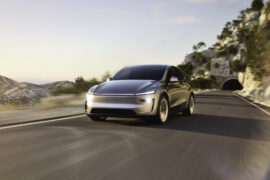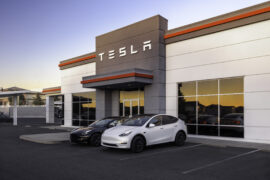Tesla’s latest quarterly sales report signals a major shift, with a 13% drop in deliveries—the steepest decline in the company’s history. A growing field of EV competitors and shifting sentiment toward CEO Elon Musk appear to be dampening demand. Over the past three months, Tesla delivered 336,681 vehicles, roughly 50,000 fewer than in early 2023, marking its weakest quarter in nearly three years.
Controversy surrounding Musk’s involvement in government affairs has started to cast a shadow over Tesla’s brand image. Protests outside showrooms and vandalism at charging stations suggest frustration with his political entanglements. Critics point to his position as head of the Department of Government Efficiency as a key source of discontent, raising questions about whether his influence is steering potential buyers away from Tesla.
Tesla’s official statement on sales sidestepped the controversy, instead attributing the shortfall to production slowdowns. Updates to the Model Y led to temporary shutdowns at all four of its global factories. In a brief announcement, Tesla acknowledged the challenges of the quarter while expressing appreciation for the continued support of its investors, employees, and customers.
A slowdown of this magnitude is an unusual sight for a company accustomed to rapid growth, sometimes exceeding 100% year-over-year. Until now, the only previous quarterly decline occurred in 2020 due to pandemic-related disruptions. More concerning is that this marks a continuation of last year’s downward trend—Tesla’s first-ever annual decline—suggesting deeper challenges beyond a single difficult quarter.
Delivery numbers landed even lower than the most pessimistic forecasts, with analysts expecting figures closer to 350,000 units. In response, Tesla shares slipped 2%, adding to a broader stock decline. Hopes of political advantages had initially driven Tesla’s stock up post-election, but it has since plummeted 44% from its December peak. However, a Politico report hinting that Musk may step back from his government role briefly sent shares rebounding.
Industry analysts warn that Musk’s growing public persona could be damaging Tesla’s reputation. Wedbush Securities’ Dan Ives, a longtime supporter of the company, admitted that while a weaker quarter was anticipated, the extent of the decline was worse than expected. In a note to investors, Ives framed this moment as a pivotal one for Musk, emphasizing that his political involvement is fueling a branding crisis with real consequences for Tesla’s market position.
Musk’s outspoken nature and polarizing political ties have made him a controversial figure, especially among those who oppose the current administration. A recent CNN poll found that just 35% of Americans hold a favorable view of him, while 53% see him negatively—numbers that place his public perception below even Vice President JD Vance’s. These attitudes are starting to impact consumer loyalty toward Tesla.
Liberal-leaning consumers, who once embraced Tesla as a leader in sustainable transportation, appear to be turning away from the brand. A Morning Consult survey found that the percentage of U.S. car buyers unwilling to consider Tesla has nearly doubled since 2021, rising from 17% to 32%. This shift suggests that environmentally conscious buyers may be looking elsewhere for their next EV purchase.
S&P Global Mobility data reveals a widening political divide in Tesla’s customer base. In states that have voted Democrat in the last four presidential elections, repeat Tesla purchases fell from 72% to 65% within a year. Meanwhile, in Republican-leaning states, retention held relatively steady, edging up from 47.6% to 48.2%. These figures point to an increasingly regional and ideological split in Tesla’s appeal.
While Tesla does not release sales figures by region, data from the European Automobile Manufacturers’ Association paints a bleak picture. Deliveries in Europe fell by 49% over the first two months of the quarter, a stark contrast to the overall 28% growth in EV sales across the continent. Musk’s vocal support for far-right politicians in Germany and the UK could be alienating buyers, but intensifying competition from emerging EV brands is also playing a role.
China remains a critical market for Tesla, but domestic rival BYD continues to gain ground. In the last quarter, BYD delivered over 416,000 all-electric passenger vehicles, marking a 39% year-over-year increase. While Tesla has held onto its annual EV sales crown, BYD’s momentum suggests a potential takeover by 2025. With more affordable pricing and advanced charging technology, BYD poses a serious challenge—though its impact in the U.S. remains limited for now.





